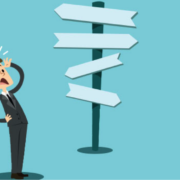8 Reasons why Small Business and Start Ups Fail?
“Failure is the opportunity to more intelligently begin again…”
Henry Ford
Today I’m going to explain to you what I see to be the essence of failure management and this is how failure should be managed by entrepreneurs and businesses.
Learn from your mistakes and make them part of your business experience. Try not to repeat them and always try to accumulate knowledge from more experienced professionals or experts. The attitude “I know best for my business” in most cases simply, doesn’t work.
An analyst can classify the reasons for a start-up and SME failure in multiple categories. Here I am going to try and present the most common and logical.
-
How big are you?
– The size of each given organization is closely related to the failure rate. In general the bigger the better. This is due to many reasons. For example the number of employees is an indicator of a healthy company with steady growth rate, competitive and better positioned in the market, with larger market share. There is also the “Critical Mass” factor. Some companies are just too big to fail. Just see how the banking sector was bail out during the last crisis in 2008
-
How long have you been around?
– The age of the business is again a critical survival factor. The important dates to watch out are the first year, the third year and the fifth year. Within this time period, if you survive, you probably gone through all the “childish diseases” that start-ups and small SMEs face. Sales problems, identity problem, market positioning problems, staffing problems and funding problems. Normally after the first five years you are ready to capitalize on your customers, your network and your business. It goes without saying that after 5 years you are no longer a start up.
-
Which is your main business Sector?
– An old story when it comes to business failures. The same conditions and the same rules do not apply in every business sector. Take for example the 2008 financial crisis. The first sectors to go were service based sectors (like banking, insurances, advertisement, media) in addition to real estate and automotive sectors i.e. sectors that are consider growth driven. In comparison businesses operating within Energy, Food and Health sectors managed to limit their losses. This is due to the fact that in any crisis survival instincts are kicking in, resulting in spending just for the essentials. Good examples on both sides of the fence are the Royal Bank of Scotland which was saved by the UK government as part of a massive £37 billion bailout deal (as of August 2015, UKFI has a 73% stake in the bank) and Costa Coffee UK’s leading coffee shop chain, which in April 2013 reported an annual revenue growth of 24% with 44 quarters of consecutive revenue growth!
-
Where are you geographically based?
– Another critical factor for business failures is the actual place of operations. Countries play a vital role on the development, growth or failures of businesses. Take as example the ongoing economic crisis in the so called P.I.G.S. (Portugal, Ireland, Greece & Spain) countries. Companies in those countries are more vulnerable to failure despite their sector, their size and their age. The reason is that the affected economic environment is changing the consumer behavior trends, investor’s confidence and disrupts financial transactions. For example in 2015 Microsoft cancelled a major new investment in Greece despite their initial pledge to support the technology sector of the country. Coca Cola Hellenic Bottling company Greece’s biggest quoted company left the country in favour of London and Switzerland. Many companies regardless of their size and industry followed by migrating to neighboring Bulgaria and other EU countries or stopped their operations.
-
What are the economic conditions in which you operate?
– Closely related to the previous point. You need to be aware of the macro and micro economic environment in which you operate. Nothing is for granted. Be aware how things around you, can affect your business and insure your survival. Taking examples of the recent events, if you are in the green business you are probably going to see a potential growth due to the recent decisions at COP21, the shift of consumer behavior to more sustainable products and services and the recent environmental and nuclear catastrophes. If you are heavily depended on the US market a potential second financial crisis (debt management problems) will affect your customers and can put you out of business, if your suppliers are from Middle East you will probably face supply problems due to the ongoing conflicts, etc.
-
Who is the boss?
– This has to do with the capabilities of the people that manage the business. Especially in start-ups and SMEs the abilities and the personal attributes are of essence. The previous experience, the track record, the education and immediate personal environment (family and friends) can play a catalytic role on the survival or failure of a business.
-
Show me your colleagues!
– Essentially show potential investors the team, the people who you work with. The team spirit and the team chemistry are important in small sized businesses where multitasking is an everyday occurrences, narrow roles do not exist and the importance of every individual for the team’s success is critical, “…the chain is as strong as its weakest link”
-
What do you sell?
– How mature or innovative is your product or service? What you sell, when do you sell it and what is the perception of the market for your product/service can make you or break you! Examine innovative companies with products ahead of their time. Example, the electric cars – the demand is minimal due to price, the non-existing support networks and the infancy level of the technology. So the product is not as yet ready to be mass produced and accepted by the market, despite the noble efforts of TESLA and a few others. However as supportive networks and rapid charging points become available and the technology progresses your product will become more relevant to the market needs.
So always be prepared to make corrections and adjustments to your business model. Try to build up a diversified customer base and try to exploit the biggest advantages you have as an SME; flexibility and the ability to adapt to the market needs.
Always plan to face the worst case scenario. Remember No Plan or Policy can be formulated for any given start up or SME without a fundamental understanding of the importance of business failure.
And to sum up as I started – “… The single reason companies fail is they over invest in what is as opposed to what might be…” quote by Gary Hamel – Business Thinker
Ypatios Moysiadis | For more visit my Youtube Channel or continue reading the Cleantech Geek Blog.







